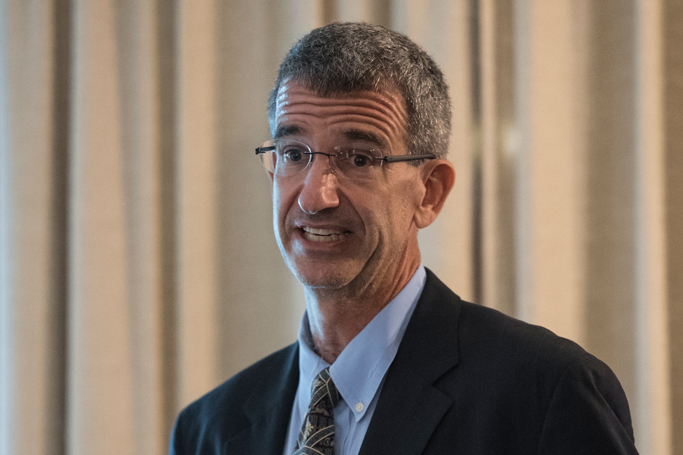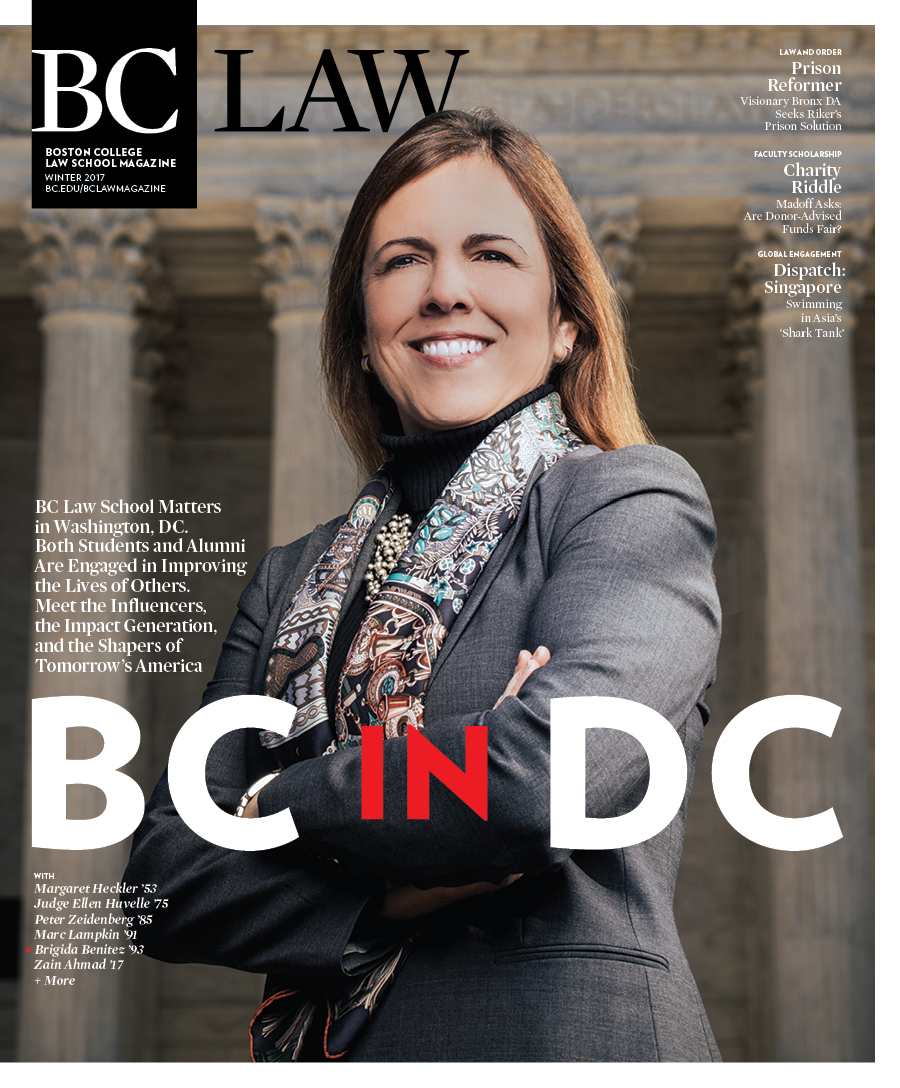A condemnation of America’s failure to adequately protect marginalized citizens, a scholarly outcry against solitary confinement, and a cautionary preview of Trump’s potential impact on constitutionalism were among the topical themes explored last fall by BC’s Clough Center for the Study of Constitutional Democracy in its Distinguished Lectures in Jurisprudence at the Law School.
Describing the Fourteenth Amendment as an act of war born of the Civil War and not a measure of peacetime construction, historian Michael Vorenberg (pictured above) argued that the amendment’s preemptive powers to protect civil rights are being underutilized. Since the US remains under the national state of emergency begun in 2001, and as state-sanctioned violence continues to plague black and brown Americans, Vorenberg questioned why the US government isn’t exercising its constitutional prerogative to protect marginalized Americans’ rights using preemptive action. The circumstances of the Fourteenth Amendment’s creation and use, he said, can help us reimagine its application, even 150 years later.
Yale Law professor Judith Resnik attacked the perverse justification that US prisons employ when meting out punishments like solitary confinement. She placed much of the blame for the current situation on the Supreme Court’s 2005 Wilkinson v Austin decision, which found that a prisoner’s liberty was already curtailed by virtue of imprisonment and therefore further infringements on that liberty were permissible. Resnik called for reform. We need to view our prisons as a type of punishment themselves, she said, not as a vehicle for the administration of punishment.
Law scholars from Boston College, Harvard, Columbia, and Boston University floated potential scenarios pertaining to constitutional guarantees under President Trump. They envisioned 1) a dual system in which full citizens enjoyed provisions denied to everyone else, 2) the undoing of advances that ended racial quotas for migrants, and 3) the revision of birthright citizenship. They also found it worrisome that the constitution is not well equipped for the information age and lacks provisions for fact-manipulation the likes of which occurred during the presidential election.



